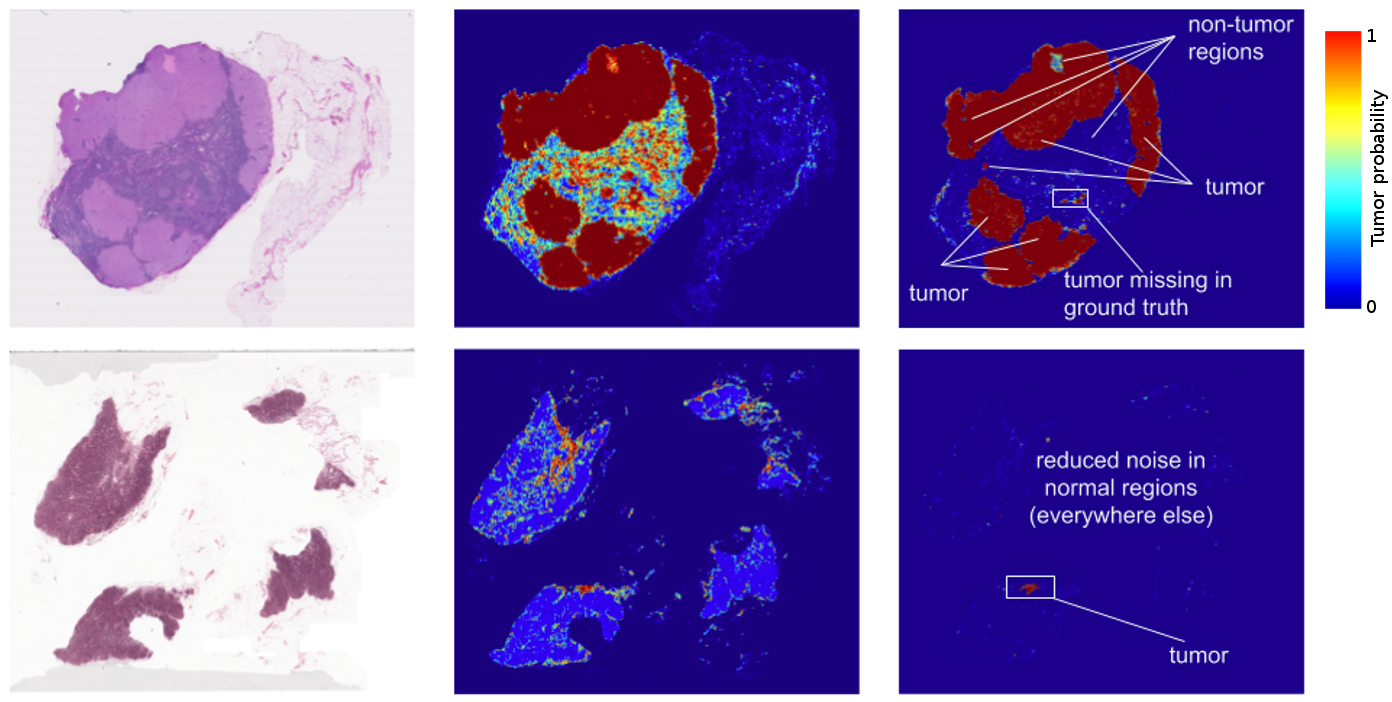Google AI detects breast cancer better than pathologists

Google has successfully applied deep learning artificial intelligence algorithms to the diagnosis of breast cancer.
In a study carried out by researchers taking part in Google’s Brain Residency Program – a 12-month educational course in machine and deep learning – an algorithm was trained to detect breast cancer tumours in a dataset of digitised pathology slides provided by Dutch medical institute the Radboud University Medical Center.
After ‘training’ the algorithm, researchers were able to achieve a 92% sensitivity in picking out tumour cells from the slides – significantly higher than the 73% achieved by trained pathologists with no time constraint.
In addition, the team recreated the accuracy in different datasets taken from other hospitals and scanning machinery.
The team did report an average of eight false positive per slide compared to none from trained pathologists. However, this rate was lowered through further customisation of the algorithm.
The algorithm results display as a heat map (shown below) that overlay a particular colour in regards to the likelihood of a specific part of an image housing cancerous cells.

Left: Pathology slides of two lymph node biopsies. Middle: early results from deep learning tumour detection. Right: final results following further customisation of the algorithm.
In everyday practice, pathology slide analysis is a time-consuming process, especially when considering that each patient typically has 10 or more pathology slides for their suspected tumour. Even when the pathology process is complete, it does not always lead to a definitive diagnosis.
Because of this, using machines to accurately analyse imagery for disease diagnosis, providing a definitive decision in a much shorter time period, is an area of particular excitement in the ongoing adoption of AI in healthcare.
Google’s own AI branch DeepMind Health is currently investigating the tech as part of several collaborations with the NHS, including with Moorfields Eye Hospital to improve the diagnosis of serious eye conditions, and with University College London to help with planning radiotherapy.
Israel-based Zebra Medical is a company solely dedicated to the AI application, housing an arsenal of different deep learning algorithms to help diagnose a range of different disorders, from spinal fractures to breast cancer.
Researchers at Stanford University recently used to the technology to distinguish between benign and malignant skin growths.











